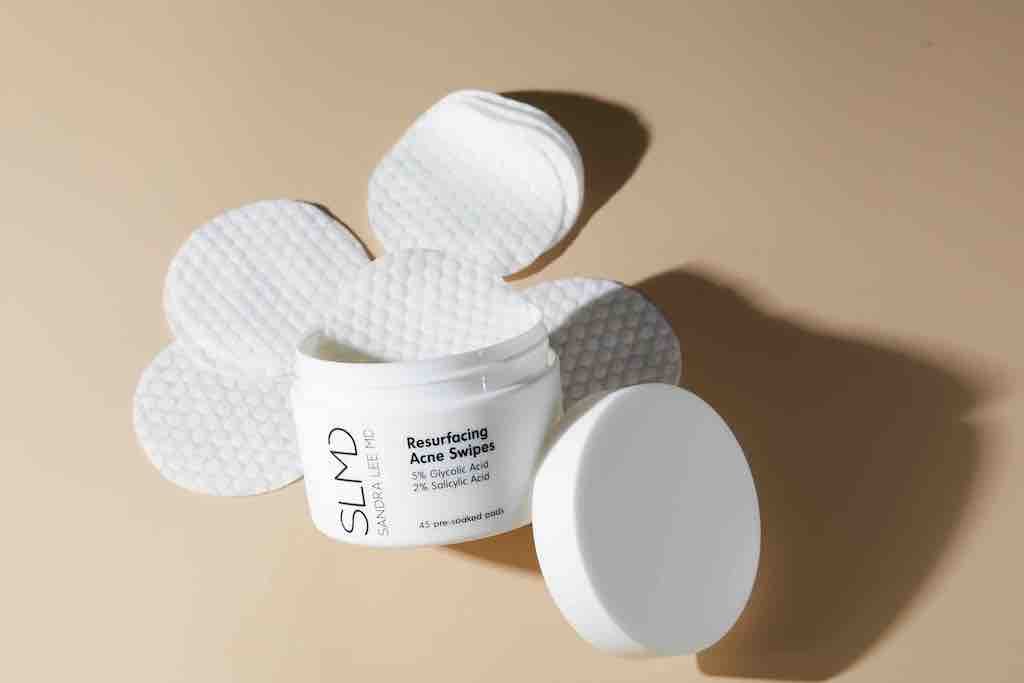Dr. Pimple Popper Reveals the Perfect Prescription for Soothing ‘Maskne’
There is good news for “popaholics” as Dr. Pimple Popper returns with a new show. She’s also sharing some quick and easy ways to manage skin irritation caused by wearing a mask during the pandemic.

Dr. Sandra Lee, aka Dr. Pimple Popper, told Showbiz Cheat Sheet she’s been busy with filming. “We are filming for the show and we’ve already filmed one batch, which is like a telederm or a telemedicine episode,” she says. “And that is airing in a few months.” Can’t wait a few months for some new pops? Lee says Dr. Pimple Popper Pop Ups debuts Thursday, July 9 at 9/8c on TLC.
She has even more content to dig into toward the end of the year. “We also filmed a Christmas episode before the pandemic, which is going to be like normal,” she says. “And then we’re in the midst of filming for the new year.”
The ‘new normal’ hasn’t been easy
Lee is known for more than her juicy pops. Her signature style is one of warmth, which often includes big hugs for her patients. With a touchless society, Lee admits she misses her usual approach.
“You will see how COVID affects how we are able to see patients now in the office,” she says. “There will be a lot more masking. And we’ll be socially distancing but will still be able to see each other’s face.”
She says as a dermatologist, having to socially distance herself from patients presents a challenge. “That is one of the things that makes it really difficult, even for me to practice dermatology with regular patients right now,” Lee says. “You can’t really touch and it definitely feels more distant. It bothers me and I know it bothers other dermatologists and probably other physicians as well.”
“And you can’t relay the same kind of feelings or show your empathy so much with just your eyes,” she admits. “So with the show, we do know that’s important. So what we’re planning on doing is an initial meet and greet outside, where there has a little bit more airflow, which makes it safer.” She adds that the constantly changing regulations could still alter production.
Dr. Pimple Popper has a remedy for a ‘new normal’ skin problem
Lee acknowledges that wearing a mask for a sustained amount of time can cause skin irritation, sometimes referred to as “maskne.” Lee says maskne will become more commonplace as mask adoption becomes widespread.
“Maskne is acne break outs under your mask,” she says. “And there’s also rashes people might develop because they might be allergic to the mask [material] itself or irritated by it from it constantly rubbing on their skin.”
“With maskne there are things people can do on their own and are treatable,” she says. Lee says maskne and skin irritation is common in warm, humid weather too. But she has a few simple tricks up her sleeve that can alleviate and reduce these issues.
“The thing I think is a great thing to use is have a convenience acne wipe,” she describes. “Something that has alpha hydroxy or beta hydroxy acid. So that when we rip off that mask in the car in between errands, you can just wipe your face.” She says the product also helps to exfoliate and clean pores.
She offers some suggestions for everyday skincare
A good retinol treatment goes a long way to keeping your skin looking good too. “Then at night you can use a little retinol which is a great product that’s going to also help to prevent or minimize breakouts,” Lee suggests. “But even our acne system and my SLMD skincare. We have all these products like my Resurfacing Acne Swipes. I now have them in my car.”
She adds that people should resist doing “homemade” facials right now. If you are allergic to one of the ingredients, it could cause even more issues.

While maskne and skin irritations from mask-wearing are usually harmless and treatable, Lee says signs of persistent skin irritation should be handled by a dermatologist. Talk to a doctor “if you are having a breakout that isn’t resolving with over the counter acne products, or have a rash that’s really itchy,” she says
“And [if] you’re scratching it to the level that you’re bleeding or have little blisters on it, that’s a sign of a potential allergic reaction to something,” she describes.”Maybe your mask or something that is touching your skin. That kind of thing usually needs prescription medication.” She says some patients may have their skin issues addressed via telemedicine if they have concerns about going into a physician’s office.


